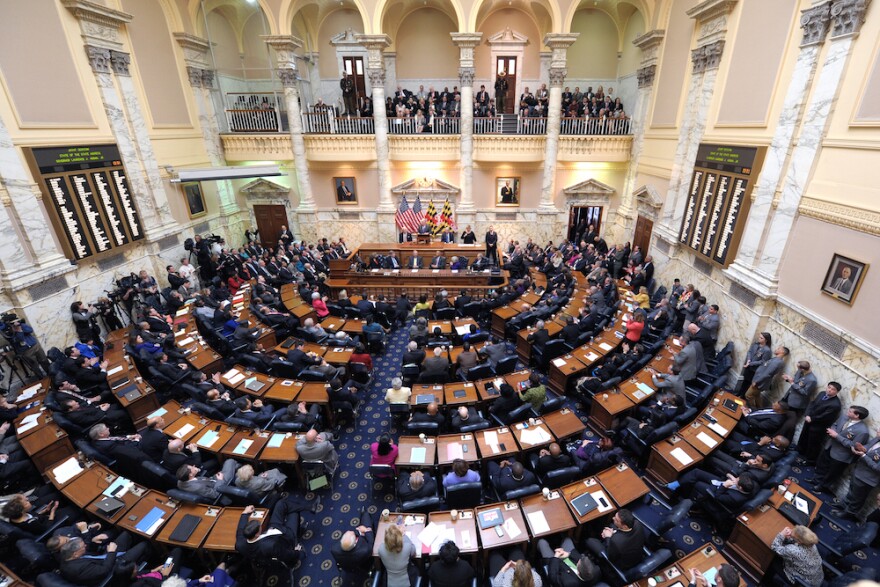The Maryland General Assembly’s annual session opens today in Annapolis. By far the most important environmental issue that lawmakers will be debating over the next three months is a proposed ban on hydraulic fracturing for natural gas.
Fracking and horizontal drilling techniques have transformed rural parts of neighboring Pennsylvania and West Virginia into oil and gas industrial zones over the last decade. But Western Maryland, which has the same gas-rich shale rock formations, has not yet experienced any fracking.
Lawmakers in 2015 passed a two-year moratorium on the high-pressure injection of water and chemicals into shale formations to release natural gas. But that moratorium on fracking will run out in October, and then the drilling could start here in Maryland if state legislators fail to act this winter.
State Delegate Kumar Barve, a Democrat from Montgomery County, is chair of the house Environment and Transportation Committee. He said that many lawmakers may be persuaded to support a ban by new scientific studies by the Johns Hopkins Bloomberg School of Public Health that document higher rates of asthma attacks and premature births among Pennsylvania residents who live near fracking sites.
“I think it’s true to say that there’s more support in the House than in the Senate. But I think there is a healthy amount of support in both chambers,” Barve said. “And I think that once everybody looks at the facts that we have accumulated over the last two years I think people are going to realize that we have to take action. We can’t just do nothing.”
New York imposed a permanent ban on fracking in 2015. In Maryland, Montgomery and Prince George’s counties have passed local bans in recent years, as have the communities of Friendsville and Mountain Lake Park in Western Maryland.
Another politically charged vote that will come very early in the Maryland General Assembly session this winter will be a move by Democrats to override Governor Larry Hogan’s May 27 veto of the Clean Energy Jobs Act of 2016. The bill would have required power companies to buy more electricity from renewable sources such as wind and solar, a total of 25 percent by 2020, up from the current requirement of 20 percent by 2022.
“Governor Hogan vetoed that,” said Karla Raettig, executive director of the Maryland League of Conservation Voters. “But we are confident that we have the votes to override that veto. So that will be the very Number One hottest topic right off the bat.”
Hogan opposes the legislation, because it could potentially mean electricity rate increases for consumers. He is proposing an alternative package of green projects, including more tax credits for electric vehicles and $3 million to help train workers in the solar, wind and hydroelectric industries.
The governor is also promoting what he calls his “Clean Water Commerce Act.” The bill would take $10 million in state “flush tax” money, intended to upgrade sewage treatment plants, and use it instead to jump-start a market for pollution credit trading.
The idea behind pollution trading is to use Wall Street-style free-market principals to direct money to pollution control projects that can get the most bang for the buck.
Ben Grumbles is the Maryland Secretary of the Environment under Governor Hogan, and an enthusiastic advocate of what he calls “nutrient trading” to clean up the Chesapeake Bay.
“Maryland is absolutely committed to using all of the tools we have – regulation, enforcement, public funding – but adding more tools such as nutrient credit trading,” Grumbles said.
Under such a system, taxpayer money that might have been used to build stormwater or sewage control systems in an urban area like Baltimore could instead be diverted to pay farmers to plant trees along streams. Many environmentalists worry that pollution reductions in such a system would be impossible to monitor or verify.
And pollution trading could be unfair to urban residents in places like Baltimore, who could see money meant to improve urban streams and the Inner Harbor be traded off to improve water quality and property values in wealthier rural areas that support governor Hogan.




